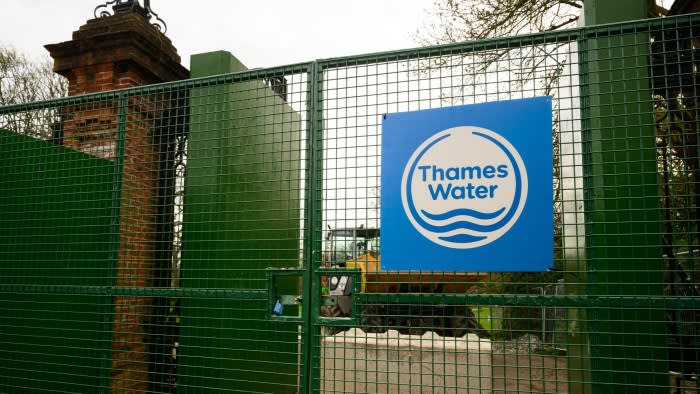Unlock the Editor’s Digest for free
Roula Khalaf, Editor of the FT, selects her favourite stories in this weekly newsletter.
When time runs short to solve a problem with few easy answers, it is natural to ask for leniency.
Debt-laden Thames Water has been lobbying England’s water industry regulator for lower fines and higher customer bills. Ofwat is now examining whether a special “recovery regime” — including potentially more “realistic” targets to reduce sewage leaks — would help avoid a quasi-renationalisation of the UK’s largest water utility. The question is how special that treatment can actually be.
The water industry argues that fines, even if justified, add to the negative spiral in which Thames finds itself. It is grappling with overall group debt of £18bn, the rising costs of maintaining its aged infrastructure and the onus of delivering critical upgrades.
Thames has sufficient cash and committed borrowing facilities that would see it through until about this time next year. But it requires more than £3bn of equity by 2030 to keep operating while also delivering vital infrastructure improvements.
For campaigners and politicians who argue Thames’s woes are largely of its own making, any kind of clemency is likely to be met with protests. Even if Ofwat were prepared to face those down, in reality the room to dish out special treatment should be limited.
Ofwat will in July deliver draft regulatory plans that will indicate to water companies and their investors what kinds of returns they might expect to make on their investments for the five years from April 2025. Ofwat’s regime also includes incentives and penalties for under- and overperformance. Final determinations will be published in December.
In considering each company’s case, Ofwat can take variances into account. Companies operating in different parts of the country often face very different challenges. Part of Thames’s complexity is its size.
But the regulator’s treatment of individual companies also has to pass the fairness sniff test.
Investors who feel they may be receiving inferior treatment to others can seek to challenge the regulator via a judicial review in the High Court. That would likely rule out special treatment on most important metrics — such as investment returns and allowances for cost of debt. It would also make it difficult for the regulator not to penalise poor performance, say regulation experts.
England needs financially stable water companies. But Ofwat faces a tricky balance in setting regulatory terms that can attract investors without turning a blind eye to poor performance.
nathalie.thomas@ft.com


